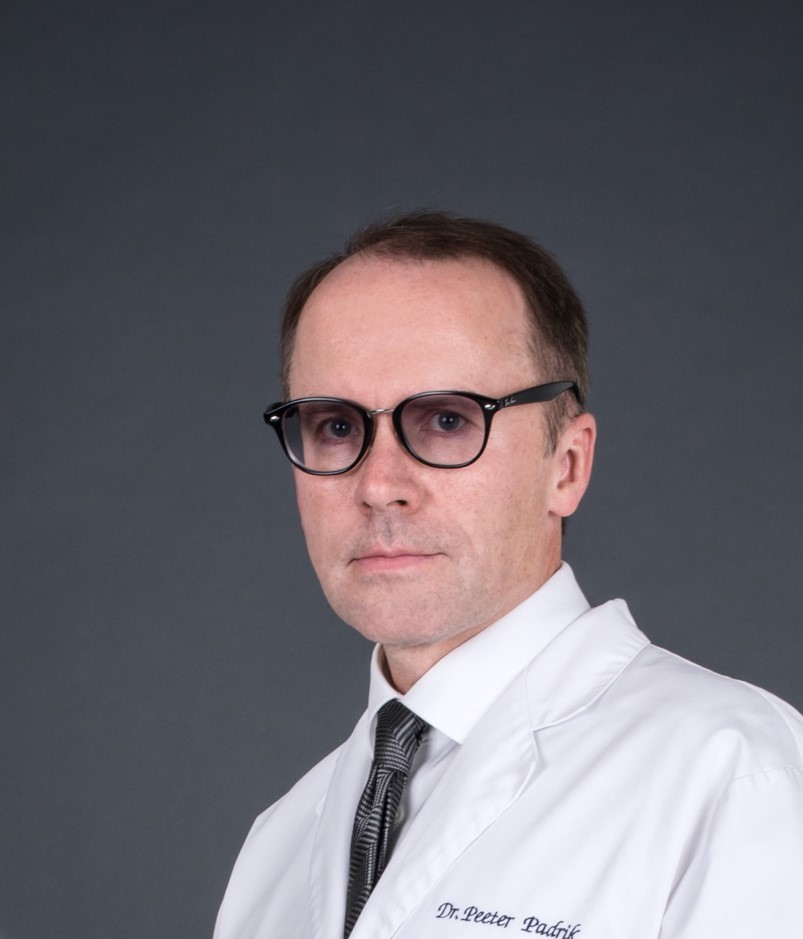Meet the INNOVEIT Tallinn Speaker: Peeter Padrik

Some of the brightest lights in the EU’s digital transformation can be found in Estonia. That is why EIT’s Europe-wide INNOVEIT tour will stop by Tallinn on 21 September 2022 for INNOVEIT Tallinn. There, we will show how the EIT community’s unique approach to digitalisation can uplift all other domains, from the green transition to more advanced healthcare services.
Peeter Padrik is the Founder and CEO of Antegenes – an EIT-supported healthcare start-up specialising in innovative genetics testing. He will join us at INNOVEIT Tallinn for a panel discussion about the digital transformation of EU industry. We got a bit of a preview when we interviewed him, getting his views on his EIT experience and how digitalisation can affect healthcare systems.
EIT: You are the Founder and CEO of Antegenes. How would you explain what you do to an industry outsider?
Peeter Padrik: Antegenes has developed and brought to clinical use innovative genetic tests for breast, prostate, colorectal cancers, and skin melanoma. These tests are innovative, based on polygenic risk score technology. And, using our tests, it’s possible to implement more effective and accurate cancer prevention to reduce cancer deaths.
EIT: In the past few years, there has been a paradigm shift taking place in medicine from treatment to prevention. How does Antegenes contribute to cancer prevention?
Peeter Padrik: Breast, prostate and colorectal cancers are the most common and deadly cancers worldwide. But if you detect these cancers as early as possible, they are highly curable. With that, cancer screening programmes are implemented, but currently they only consider age as a risk factor. And therefore, they are not precise, are not efficient enough, and are therefore outdated.
Our genetic risks tests for cancer are very different than using our clinical-grade tests. We can evaluate our individual risks for these diseases and implement, accordingly, prevention. And with these measures we know we can reduce 30-40% mortality from these common diseases.
EIT: How accessible do you think your tests are to the wider public? What do you think is necessary to make it more available to everyone?
Peeter Padrik: Currently, it is possible to order our tests from our website as a European Union cross-border healthcare service. Or through our distributors. This website service is actually one example of modern healthcare digitalisation. So yes, our tests are in this sense very accessible.
But of course, from other sides, both individuals and healthcare professionals need more information about the possibilities of precision prevention of common cancers. And therefore, additional information and education on these topics are necessary. And of course, one important topic is reimbursement of precision prevention services and tests. Currently, our tests are not reimbursed by healthcare insurances. One test is approximately 200 euros.
EIT: Do you see ways in which your innovation can be adapted to detection of other chronic or autoimmune diseases?
Peeter Padrik: Yes, similar technologies are possible to use for other diseases like cardiovascular disease and diabetes, which are also very serious healthcare problems and have a genetic component. But these are currently in development. Studies need additionally to develop clinical implementation models to achieve clinical benefits in healthcare.
EIT: How has the digital transformation affected the healthcare industry?
Peeter Padrik: Actually, modern healthcare is heavily digitalised, and it is not possible to imagine what healthcare technologies would have done without digitalisation. For example, our services are digitalised in every step, actually, from conducting genetic tests to genetic counselling and consultations telemedicine services. If you think about it, then actually all healthcare is already heavily digitalised.
EIT: Antegenes joined EIT Health’s Bright project. How did you hear about the EIT? How did the EIT help find customers, partners, or investors? And how did it further develop your venture?
Peeter Padrik: Antegenes is actually a spin-off company from the University of Tartu, who is a partner within the EIT Health network. So, our contacts with EIT Health came from our university. EIT Health has helped us develop a strong partnership consortium to pass quite complex processes bringing healthcare innovation into actual everyday use.
EIT: What are you looking forward to during the INNOVEIT Tallinn event?
Peeter Padrik: I am looking to the INNOVEIT Tallinn event for the sharing of experiences performing digitalisation in different fields. So hopefully we can share our experiences and learn from other areas of digitalisation.
Want to hear Peeter Padrik at INNOVEIT Tallinn?
Join the event in person or online and become a part of the EIT community!
Read the agenda and register here


 Share this page
Share this page


